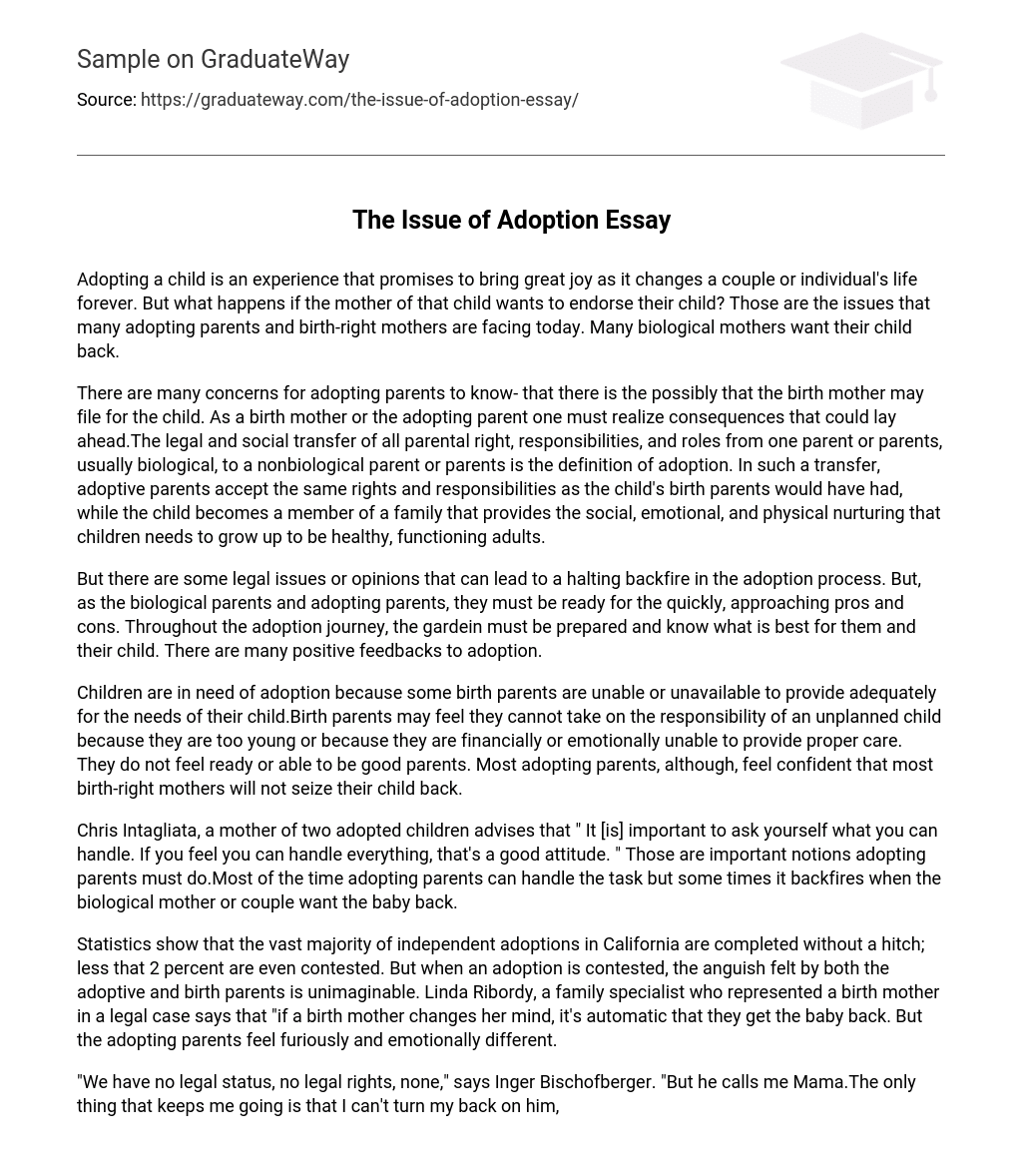Adopting a child can greatly affect the lives of couples or individuals, bringing them immense happiness. However, complications may arise if birth mothers express their desire to regain custody. This situation poses challenges for both the adoptive parents and biological mothers involved.
Adopting parents should be aware of important considerations, such as the possibility of the birth mother seeking custody of the child. Both parties involved must understand the potential consequences in this situation.
The legal and social transfer of parental rights, responsibilities, and roles from biological parents to nonbiological parents is known as adoption. Adoptive parents assume the same rights and responsibilities as birth parents would have had. The child also becomes a part of a new family that provides them with necessary support for their growth into healthy adults.
Despite potential legal issues, conflicting opinions, and challenges, it is crucial for biological and adoptive parents to have a thorough understanding of the advantages and disadvantages. It is important for parents to be well-prepared and informed throughout their adoption process in order to make optimal decisions for themselves and their child. Adoption has been widely praised.
Children require adoption when their birth parents are unable or unavailable to sufficiently meet their needs. Birth parents may find themselves incapable of taking care of an unplanned child due to youth, financial constraints, or emotional unpreparedness. These factors contribute to birth parents feeling ill-equipped to provide proper care and being unsure about their readiness or ability to be good parents. However, most adoptive parents trust that birth mothers who have chosen adoption will not try to reclaim their child.
Chris Intagliata, a mother of two adopted children, brings forth the advice that it is crucial for potential adoptive parents to reflect on their own capabilities. She emphasizes that having the belief that one can manage all aspects of adopting is a positive mindset. These are vital considerations that adopting parents must undertake. While most of the time adopting parents are able to handle the responsibilities successfully, there are cases where complications arise if the biological mother or couple expresses a desire to reclaim the baby.
According to statistics, the majority of independent adoptions in California are completed smoothly, with less than 2 percent being contested. However, when a contested adoption occurs, both the adoptive and birth parents experience unimaginable anguish. Linda Ribordy, a family specialist who represented a birth mother in a legal case, states that if a birth mother changes her mind, she automatically regains custody of the baby. However, the adopting parents feel intensely and emotionally different.
Inger Bischofberger asserts that we have no legal status or rights. Despite this, she is called “Mama” by someone. She remains involved because she cannot abandon him, as all the adults in his life have failed him. Some argue that birth mothers who are financially unprepared should not regain custody of their child.
In many cases, individuals are often hindered by greed and emotions from wanting their child back. However, as children grow older, they begin to question the reasons behind their birth mother’s decision to place them up for adoption. They may wonder why they were chosen or why their biological mother chose to give them up. Sometimes, the birth mother may worry that her child will hold resentment towards her as they become adults and never visit. Therefore, it is crucial for the birth mother to carefully consider adoption before deciding to give up custody or attempting to regain it. This process not only presents emotional challenges but also has financial consequences.
The importance of adoption is understanding the need for careful consideration prior to having a child, regardless of factors like premarital sex, age, or financial and emotional difficulties. One must be ready for the outcomes that may arise.





